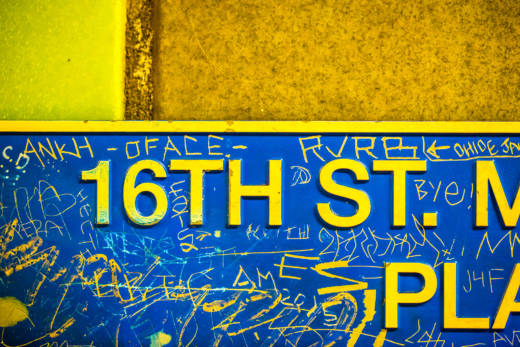She turned the proceedings over to Paul Oversier, BART's assistant general manager for operations, who started by saying the system's riders "have been speaking loud and clear over the last couple of years about some of the conditions they find in our stations and even on some of our trains."
Oversier said that has led the agency to revamp its cleaning department, hire more workers and reassign some from outlying, relatively low-traffic stations to the system's busy San Francisco core, including 16th Street. The net result -- and the "really good news" that Ronen mentioned -- was that by April the agency will have filled all 14 cleaning shifts at the station and that two cleaners will be working simultaneously during six of those 14 shifts.
Oversier also told the committee BART has expanded steam cleaning of the plazas from one hour to four hours a night, seven nights a week. In April, he said, the agency will pay to have the plaza surfaces deep-cleaned and sealed. That will make the nightly cleanings "much more effective in dealing with the smells and some of the other issues that are there."
Supervisor Jeff Sheehy, the committee chair, said he was thankful for the steps Dufty, Ronen and BART are taking to improve things at 16th and Mission. But he said the transit agency has a much bigger problem on its hands with the large population of destitute people, including many drug users, who have taken up daytime residence in and around the Civic Center and Powell Street stations.
"I wonder what the thinking is at BART about addressing this issue of homelessness more holistically," he said. "You know, my daughter will not get out at Powell Street to go skating at Yerba Buena because it's disgusting. ... And what's even worse is that it's heart-wrenching just as a human being when you have bodies, some of them partially dressed, passed out, injecting ..."
Sheehy said some BART trains now resembled "a moving homeless shelter."
"What's missing is a coordinated response," Sheehy said, adding that he thought BART should set up its own formal homeless response program or work better with the cities it serves to provide services.
"I can tell you both from my own experience and from my constituents that what you're doing is not working, and the trajectory is downward, not upward," Sheehy said. "... What is the plan? You've got this great plan for one station ... and just cleaning when the root of the problem is this homelessness problem."
"Respectfully, we're a transportation agency," Oversier answered. "That's our charter, that's why the state created us. That said, our customers are telling us, just us you told me, that what they're encountering on our system is not acceptable to them. And frankly, they don't care whose responsibility it is. They're encountering it in our stations and on our trains and they expect us to deal with it."
Dufty, a former member of the Board of Supervisors who later directed the city's homeless services, acknowledged Sheehy's concerns but said BART is working both within the agency and with other jurisdictions to address the issues he raised.
"The plan that's been presented [within BART] is very comprehensive," Dufty said, adding later: "BART is not unlike anyone else. Law enforcement is not an effective response to homelessness. Housing is how you have to respond to homelessness, and that's where we really have to partner with the city and be more effective."
The hearing's public comment segment swung to yet another of the many issues swirling around the corner of 16th and Mission -- gentrification.
The northeast corner of the intersection -- now occupied by one of the BART plazas, a Walgreen's, a defunct Burger King, a produce market, a Chinese restaurant and a bar -- is the proposed site of a massive market-rate condominium development dubbed the Monster in the Mission by neighborhood opponents.
Many of the public comments came from people who said they're part of the Plaza 16 Coalition, a group organized five years ago to head off the condo development.
Katie Selcraig, the hearing's first public commenter, told the hearing the issues at play at 16th and Mission go far beyond the plazas' cleanliness.
Selcraig, who said she works with the Mission SRO Collaborative, Dolores Street Community Services and Plaza 16, said while she welcomes the steps to improve conditions at the BART station, a history of government neglect has worked to open the door for gentrification in the neighborhood.
That neglect has fueled prejudice against the poor, she said, and "allows people who have never been homeless to say and believe that homeless people are dirty and disrespectful of the environment -- which are offensive and derogatory statements."

